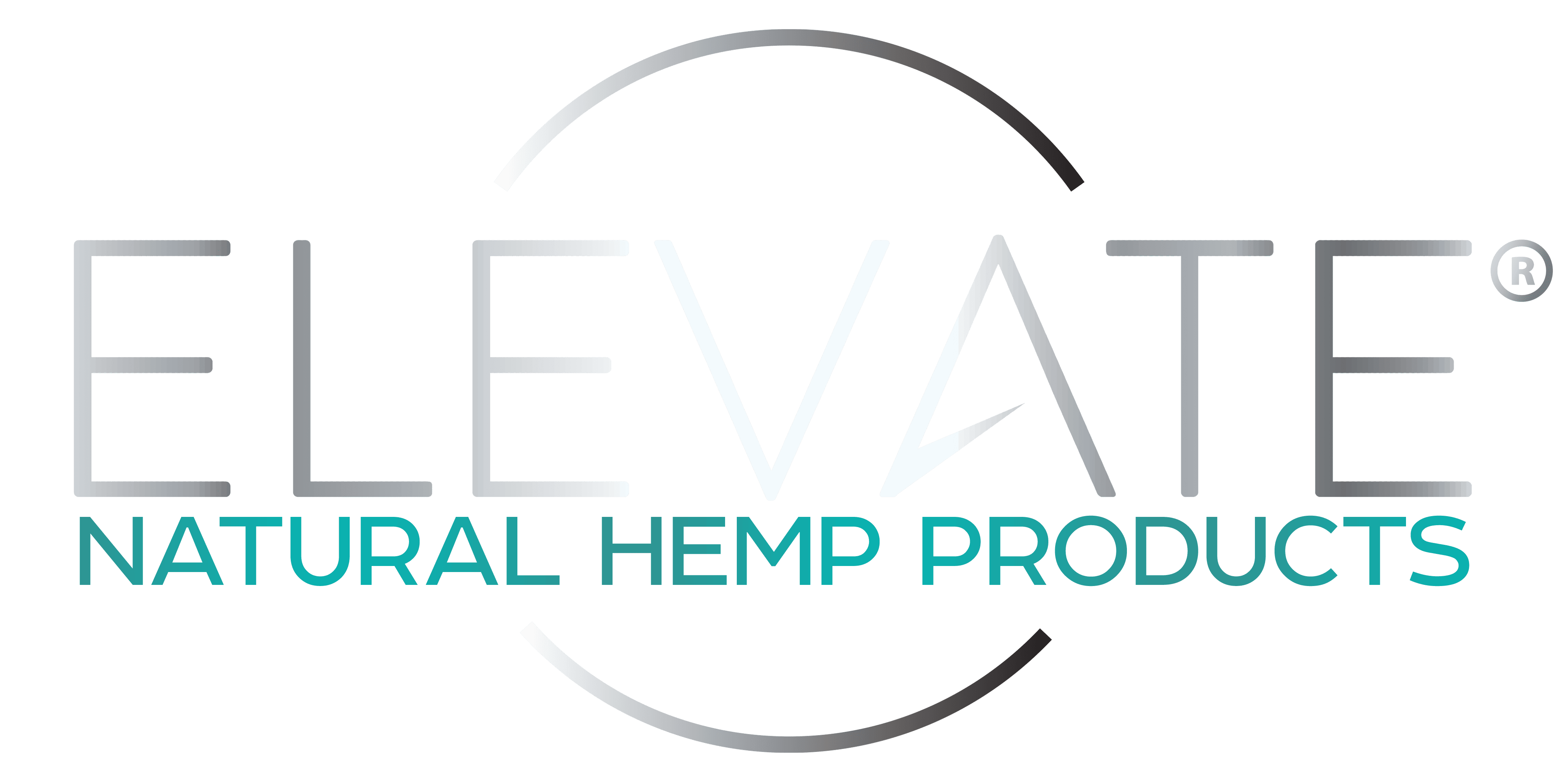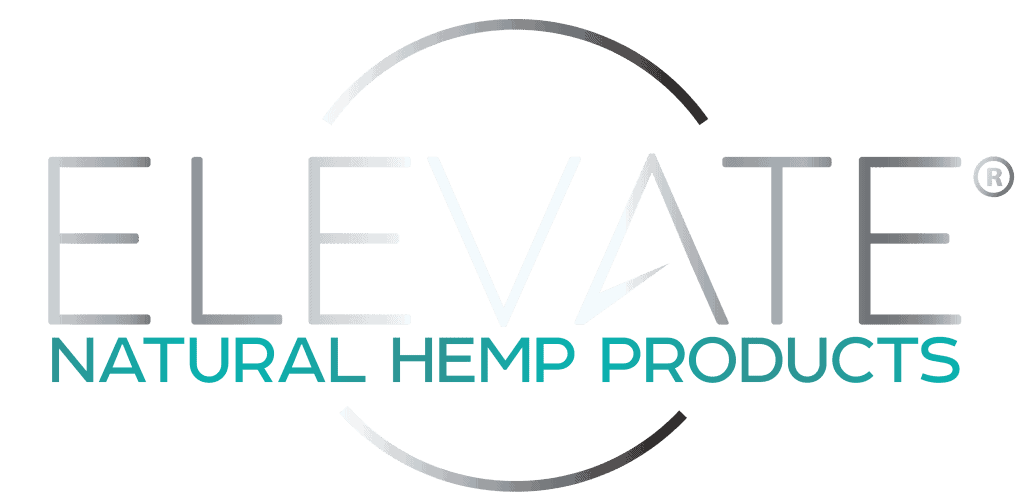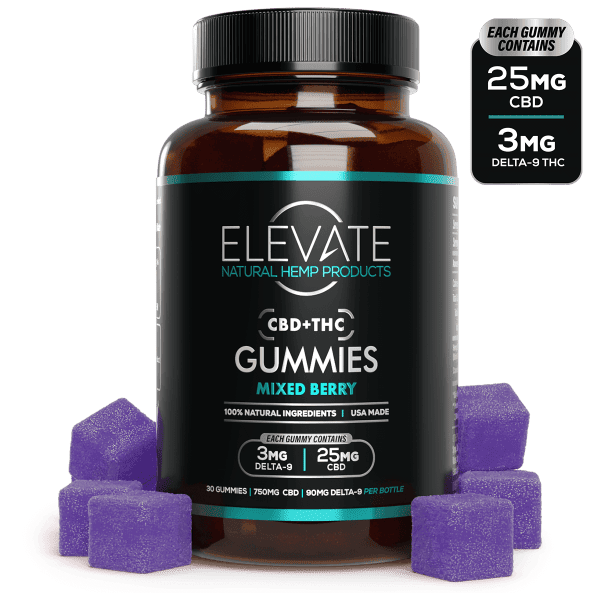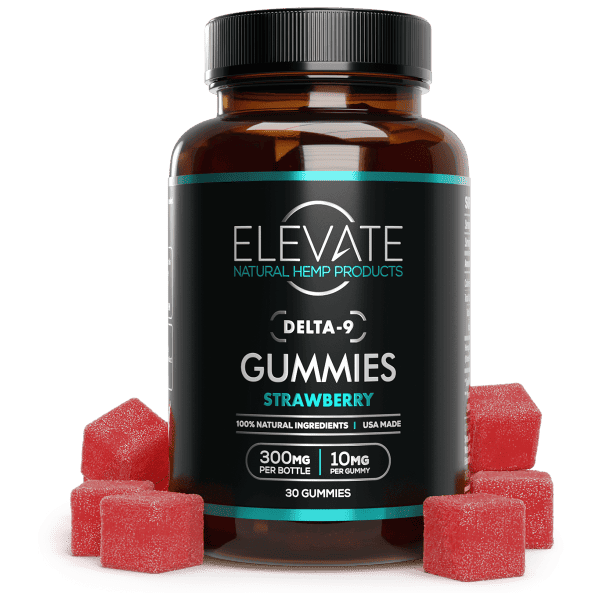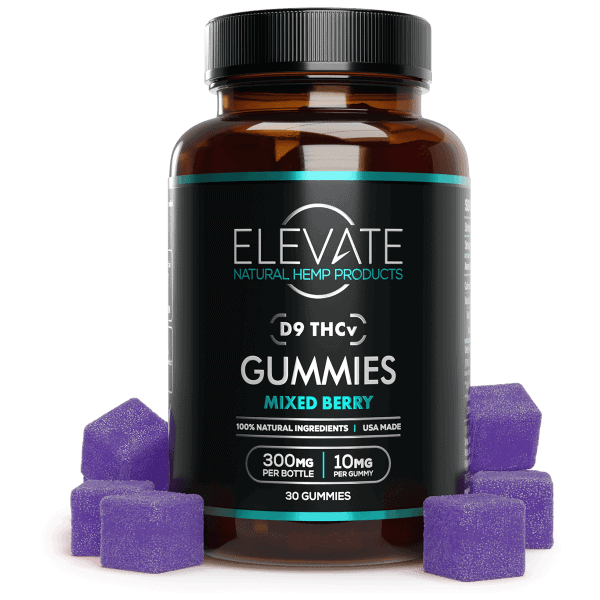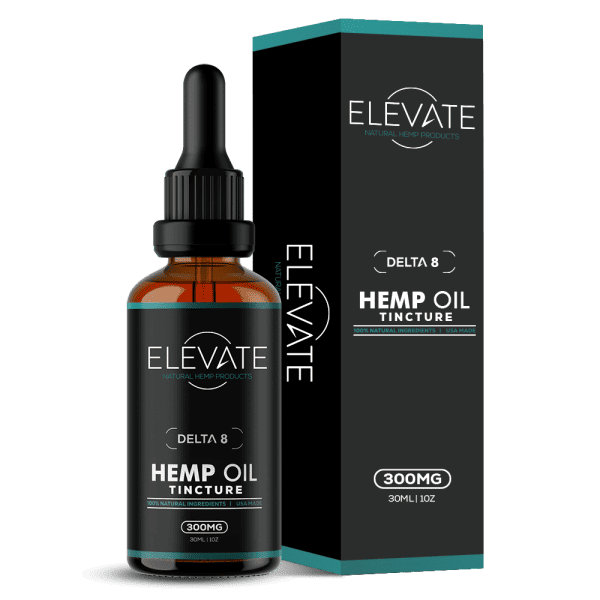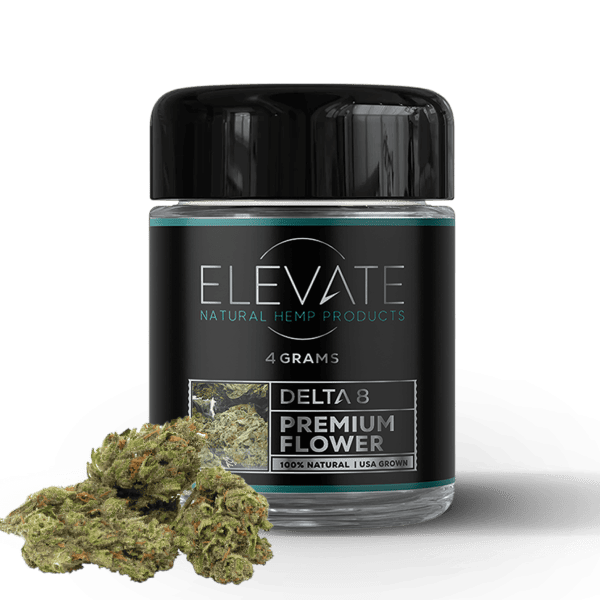
HHC vs Delta 8 – What’s The Difference?
The world of cannabis is an ever-evolving tapestry of botanical intrigue. Today, we turn the spotlight on two cannabinoids, HHC and Delta 8 THC, that are painting the canvas with fresh shades of experience. Here at Elevate, we pride ourselves in empowering you with the knowledge to cultivate discernment in your cannabis journey.
What is HHC?
HHC is a relatively new and less-known cannabinoid that’s gaining popularity among cannabis enthusiasts. Unlike most cannabinoids, HHC is not derived directly from the cannabis plant but is rather a byproduct of the degradation of the hemp plant and THC (tetrahydrocannabinol).
Chemical Composition and Derivation
HHC’s molecular structure bears a strong resemblance to that of THC. However, it has a distinct variation that differentiates it: HHC boasts a fully hydrogenated cyclohexane ring in place of the aromatic benzene ring found in THC. This distinction is not just structural; it also influences the way HHC interacts with the endocannabinoid system in the human body.
The creation of HHC is facilitated by the hydrogenation process of THC. This entails the addition of hydrogen to THC under specific conditions, which consequently alters the chemical structure. THC itself is usually extracted from the cannabis plant through various extraction methods such as CO2 extraction, ethanol extraction, or hydrocarbon extraction. The extracted THC then undergoes a chemical process where it is exposed to hydrogen in the presence of a catalyst, leading to the formation of HHC.
Is HHC Legal?
So, is HHC legal? HHC is legal in several states in the United States, including Alabama, California, Connecticut, Florida, Georgia, Indiana, Louisiana, Maine, Maryland, Massachusetts, Michigan, Minnesota, Nebraska, New Jersey, New Mexico, North Carolina, Ohio, Oklahoma, Oregon, Pennsylvania, South Carolina, South Dakota, Tennessee, Virginia, and West Virginia.
However, as laws are constantly evolving, it is advisable for consumers to keep up-to-date with the regulations in their state before purchasing or using HHC products.
What is Delta 8?
Delta 8, short for Delta-8-tetrahydrocannabinol, is another cannabinoid that has recently captured the attention of the cannabis community.
Chemical Structure and Source
Delta 8 has a similar chemical structure to Delta 9 THC, the main psychoactive component in cannabis. The critical distinction lies in the placement of a double bond in their chemical structures; Delta 8 has this bond on the 8th carbon chain, while Delta 9 has it on the 9th. Delta 8 is typically found in trace amounts in the cannabis plant and is often derived from hemp or synthesized from CBD (cannabidiol).
Legal Aspects of Delta 8 THC
Delta 8’s legal status is complex and ever-changing. In the United States, the legality often hinges on whether it is derived from marijuana or hemp, with the latter generally being legal under federal law thanks to the 2018 Farm Bill. However, some states have specific regulations, and it is crucial to be aware of local laws.
HHC vs. THC: How Are They Similar
Decoding the Chemical Connection
On the surface, Hexahydrocannabinol and Tetrahydrocannabinol might seem like distant cousins, but peer a little closer, and you’ll discover they share a striking chemical similarity. Both HHC and THC are phytocannabinoids derived from the Cannabis Sativa plant. They share a similar molecular structure but differ in the placement and saturation of their bonds. HHC is fully hydrogenated, meaning its cyclohexane ring is saturated with hydrogen. In contrast, THC has a benzene ring with alternating double and single bonds.
Intriguingly, this difference in chemical composition gives rise to some of the similarities and differences in their effects. Both cannabinoids interact with the body’s endocannabinoid system (ECS) but do so in slightly different ways due to their structural variations.
Psychoactive Properties
A defining feature that HHC shares with THC is its psychoactive nature. Yes, you read that right. Much like its more famous sibling, THC, HHC also has psychoactive properties, but the experience it delivers is generally described as less intense. HHC offers a milder, more balanced high compared to THC. Users report a calmer, clearer, and more focused euphoria, with less paranoia or anxiety sometimes associated with high THC consumption.
HHC vs. Delta 8 THC – Effects & Benefits
HHC – The Balanced Explorer
Gentle Psychoactive Experience: One of its distinguishing features is the mild psychoactive experience it offers. Users often describe the feeling as a gentle and subtle sense of euphoria. HHC doesn’t leave users feeling overwhelmed or detached from reality. This subdued effect makes HHC particularly attractive for those who seek a sense of calm and tranquility, without compromising their mental faculties.
Potential Pain Relief: An area where HHC has garnered interest is its potential for pain relief. Though scientific studies are still in their early stages, anecdotal reports suggest that HHC might possess analgesic properties. The interaction of HHC with the endocannabinoid system is believed to contribute to its potential in regulating pain.
This relationship is an encouraging sign for those who suffer from conditions like arthritis, migraines, and muscle soreness due to exercise, as HHC could serve as an alternative approach to pain management.
Calming Effect: HHC’s calming properties are what have labeled it as a “balanced explorer.” Individuals using HHC have reported a sense of peace and relief from daily stress and anxiety.
What makes HHC stand out is that it achieves these calming effects without the sedation often associated with other cannabinoids. This ability to maintain mental clarity while promoting relaxation makes HHC an appealing option for those looking to balance their emotional well-being.
Delta 8 THC – The Balanced Adventurer
Balanced Euphoria: Like HHC, Delta 8 THC is known for a more tempered euphoric experience compared to Delta 9 THC. Users report a sense of happiness and elevation, without the anxiety or paranoia that can sometimes accompany the use of Delta 9 THC. This controlled euphoria makes Delta 8 THC a desirable option for individuals looking to experience joyfulness without the intensity.
Anti-Nausea Properties: Studies have demonstrated the effectiveness of Delta 8 THC in reducing nausea, and it does this with milder psychoactive effects compared to Delta 9 THC.
This is why hemp cannabinoids are particularly advantageous for patients who need to maintain a certain level of clarity and functionality during treatment. Delta 8 THC’s ability to alleviate nausea without causing heavy intoxication is one of its standout benefits and can substantially improve the quality of life for individuals dealing with nausea-inducing conditions.
Anxiety Relief: In today’s fast-paced world, anxiety is a common ailment. What sets Delta 8 THC apart in this realm is its capacity to alleviate anxiety without the heavy sedation that can sometimes be associated with other cannabinoids.
Users have reported a calming effect that is substantial yet doesn’t impede one’s ability to remain focused and engaged. This is particularly beneficial for those who wish to relieve anxiety while maintaining their day-to-day responsibilities.
The anxiety relief attributed to Delta 8 THC is believed to be linked to its interaction with the body’s endocannabinoid system, specifically the CB1 receptors in the brain. By interacting with these receptors in a less intense manner compared to Delta 9 THC, Delta 8 THC can help to regulate mood and reduce anxiety while allowing the user to maintain a higher level of mental clarity and alertness.
Is HHC Stronger Than Delta 8?
When comparing HHC and Delta-8 THC, we must consider the term “stronger” in a nuanced way, as it can refer to different aspects such as the intensity of psychoactive effects, duration, or therapeutic benefits.
To elaborate on the chemical perspective, HHC’s structure includes added hydrogen, which implies hydrogenation. This subtle alteration might influence how HHC interacts with the endocannabinoid system, particularly the CB1 receptors, which are predominantly found in the brain and are responsible for the psychoactive effects of THC. Similar to HHC, Delta-8 THC has a variance in its structure compared to Delta-9 THC, which likely leads to a reduced affinity for CB1 receptors. As a consequence, both HHC and Delta-8 are typically viewed as having milder psychoactive effects than Delta-9 THC.
However, the interaction of these compounds with CB1 receptors is just one piece of the puzzle. They also interact with other receptors and enzymes, and this complex interplay can contribute to their overall effects. For instance, the possible interaction with CB2 receptors, which are more abundant in the immune system, might also play a significant role in their potential anti-inflammatory and pain-relieving properties.
Turning to reports, many users describe HHC as generating a clearer mental state compared to Delta-9 THC. This clarity is sometimes accompanied by a sense of calm and a lack of the classic effects associated with THC. Moreover, some users have indicated that the effects of HHC seem to last longer, which might make it more appealing for those looking for sustained relief from symptoms like pain or anxiety without significant psychoactive effects.
On the other hand, Delta-8 THC has been described as a middle ground between CBD and Delta-9 THC. It appears to offer milder effects compared to Delta-9 THC, which some users find more manageable and less likely to result in anxiety or paranoia. This makes Delta-8 THC potentially more suitable for users seeking some degree of psychoactive effects from cannabis plants but in a more controlled and less intense form.
The inter-individual variability also plays a vital role in how these cannabinoids are perceived. Factors such as genetic makeup, tolerance levels, and the presence of other compounds (like terpenes) can affect the experience. Furthermore, the method of consumption, whether it is inhaled, ingested, or applied topically, will also impact the onset, intensity, and duration of effects.
Is HHC Safer than Delta 8?
The choice depends on various factors including the legal status in your location, your health condition, intended use, and personal preference for the effects of each compound.
Consider why you are interested in using either Delta-8 or HHC. Are you looking for potential therapeutic benefits, recreational use, or a combination of both? Delta-8-THC is known to have psychoactive properties similar to Delta-9-THC, though typically less potent. HHC is less studied, but initial user reports indicate that it may also have psychoactive effects, potentially with a different profile compared to Delta-8-THC. Some users have reported that HHC provides a more mild and clear-headed experience, though scientific data is sparse.
Next, consider the legal implications of using these substances. The legal status of Delta-8-THC and HHC varies by country and even within states in the US. Make sure to check the legal regulations in your area before making a choice. It is crucial to be aware of the legal responsibilities that come with the possession and use of either compound.
Our Selection of Delta 8 Products
Delta 8 Gummies
Elevate’s Delta 8 Strawberry THC Gummies are the epitome of convenience and taste. These gummies are perfect for those who want a delicious and controlled method of consuming Delta-8. With the natural taste of strawberries, they make for a mouth-watering experience. Since gummies are metabolized through the digestive system, the effects might take a bit longer to onset but tend to last longer compared to other consumption methods.
Delta 8 Vape Cartridges
Vaping is known for its rapid onset, and for those who prefer this route, Elevate offers premium Delta-8 vape cartridges. The Jack Herer cartridge offers a sativa experience and is perfect for daytime use, potentially providing a boost in creativity and focus. The Sour Diesel, another excellent choice, is known for invigorating effects that may help in energizing your day.
Delta 8 Flower
For purists who relish the traditional method of consuming cannabis, Delta 8 Flower options like Northern Lights and Zkittles are available. Northern Lights is an indica strain known for its relaxing and calming effects, often associated with nighttime use. Zkittles, a strain that boasts a fruit-filled flavor profile, is believed to uplift moods.
Delta 8 Pre-Rolls
The pre-rolls are ideal for those seeking convenience. Options like Banana Runtz and Blueberry Haze are rolled and ready for consumption. Banana Runtz, known for its sweet flavor, might offer a balanced experience. Blueberry Haze, with its blueberry undertones, is often associated with feelings of happiness and relaxation.
Delta 8 Oil Tinctures
Oil tinctures provide a discreet and measured approach to consuming Delta-8. Elevate Right offers tinctures that can be taken sublingually (under the tongue) for faster absorption or added to meals and drinks for a more gradual effect.
HHC at Elevate
For those adventurous souls looking to delve into uncharted waters, HHC gummies are available at Elevate. These gummies allow you to experiment with this novel cannabinoid in a controlled manner. As the hemp market and HHC continue to gain traction, it’s likely that more products will become available.
Wrapping Up
In wrapping up, let’s break down the key takeaways about HHC and Delta 8 for the cannabis enthusiasts over at Elevate.
If you’re looking for a milder experience without going full-on with traditional THC, both HHC, and Delta 8 are pretty solid options. However, they do have their own quirks. Delta 8 is more widely available, and you can find a plethora of products on our website to choose from. It’s like the popular hangout spot everyone knows about.
HHC, on the other hand, is like that trendy underground club – not as well-known, but definitely a unique experience. If you’re an adventurous soul looking to try something new and different, HHC might be the ticket.
So what’s the final verdict? Ultimately, the choice between HHC and Delta 8 should be guided by individual preferences and needs, coupled with diligent research.
Related Posts
Live Resin Carts vs Normal Carts
Are you curious about the buzz surrounding live resin carts and how they compare to traditional vape cartridges? Live resin carts have surged in popularity …
Does THCa Get You High?
Curious about THCa and its effects? You’re not alone. As cannabis research expands, more light is shed on the lesser-known compounds in the plant. THCa, …

